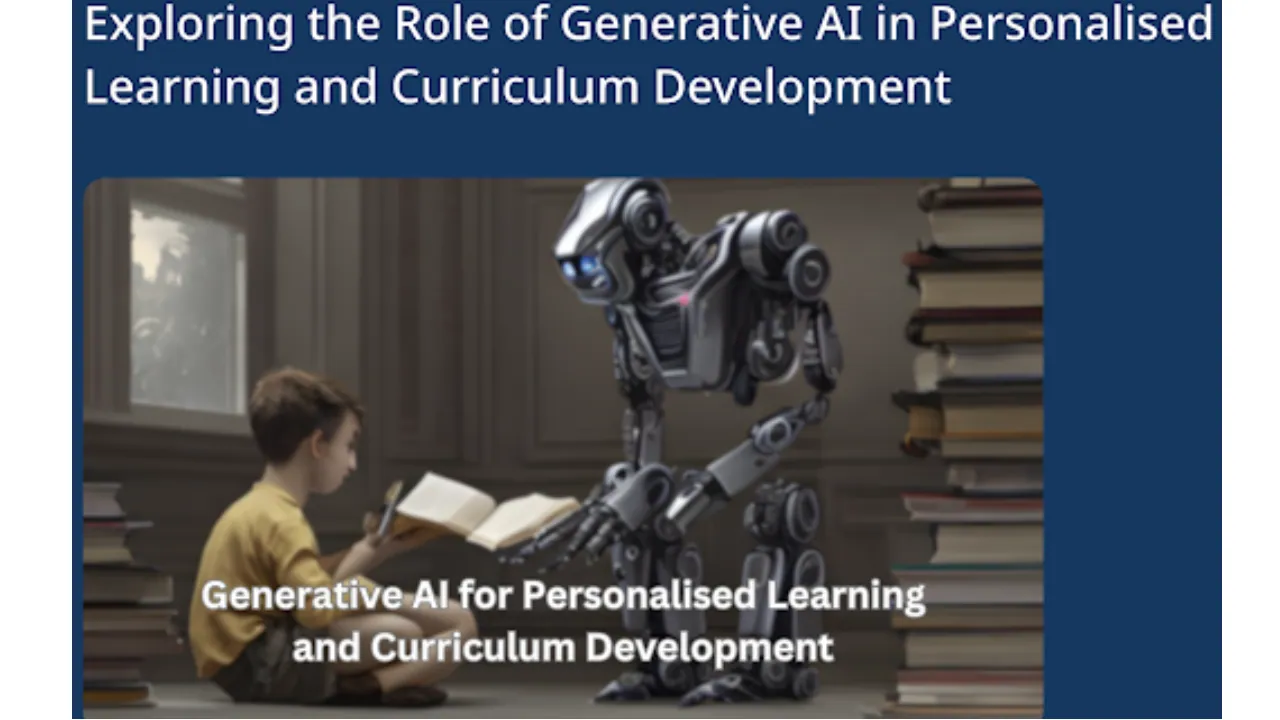In the education domain amazing changes are in a way moving along with mankind. Among the many changes is the fact that AI (Artificial Intelligence) is the torchbearer of the process, guiding the path to learning as never before. AI-idealized personal learning paths can be an effective way to assure a tailor fit education that is equally respectful to the diversity of each individual; and while there is no one-size-fit-all solution that can suit all students, such approach can offer these students an option of a personalized learning experience. This essay takes the route to AI in layers of personalization of the learning pathways, which are the ones who can turn the situation from beneficial to challenging and finally can depict the roadmap to a more personalized education system.
The Promise Of Personalized Learning
The goal of personalized learning is to tailor education for each student, taking into account their learnability, envisioning and the style of learning. Unlike the old approach where ‘one-size-fits-all’, the new paradigm proposes a situation where learners take advantage of their pace of learning while they are being guided by learning paths that adapt as per their evolving requirements. The main purpose of the personalized learning is making school environment more enjoyable and efficient and technology becomes more effective than before AI’s emerges as main player in this regard.
AI As The Catalyst For Personalization
AI technologies will become most influential in personalizing the learning pathways by machine learning algorithms and data analytics. These systems acquire a separate data on students including their past performance in examination as well as they get information about students engagement with different resources. These data science course helps candidates to have personal mentorship in full stack practical understanding. Armed with these insights, AI can tailor educational content, suggest resources, adjust difficulty levels, and even predict potential challenges a learner might face, offering remedial actions before the learner veers off path.
Key Components Of AI-Enabled Personalized Learning
- Data-Driven Insights: At the core of AI-driven personalization is the collection and analysis of learner data. This includes tracking progress, engagement, and interaction with learning materials to create a dynamic learning profile for each student.
- Adaptive Learning Technologies: These are platforms that use AI to adjust the learning content in real-time, It provides a customized learning experience that adapts to the learner’s pace and understanding. Multiple online Artificial Intelligence Course helps candidate to build their strong foundation as well as strong portfolio for jobs.
- Predictive Analytics: AI systems employ predictive analytics to foresee learning outcomes based on current trends. This can identify when a student is likely to struggle with a concept and it does early intervention.
Implementing AI For Personalized Learning: Steps Forward
Investing In Infrastructure:
Infrastructure poll shaping the personalized learning system based on AI is strong digital infrastructure. This not only means hardware but also a system of operational functions that support for on line and cloud computing.
Curating Data And Protecting Privacy:
Integrating AI into teaching process means finding the proper balance between gaining student personal data information and preserving classroom anonymity. Learning institutions need to put in place the security policies, feature the wave of data privacy to ensure the unwavering protection of the private information.
Professional Development For Educators:
The teachers are the main people who are responsible for the organization of a personalized learning system. Therefore, it is profession development in place which enable educators to equip themselves with the competencies of excellent using these AI technologies and at the same time these competencies will be integrated into the teaching practice.
Inclusive Design:
Individual learning pathways are expected to be inclusive, which means that these should cater to the needs of all kinds of learners including students with disabilities so that they can be provided with equal opportunities and opportunities for education. To make AI systems inclusive, accessibility needs to be taken under consideration at the beginning stages of development.
Full Stack Understanding Of System: AI Personalized Learning also cover complete system architecture understanding with front end and backend system understanding through full stack developer course online.
Challenges And Considerations
The edge of AI-powered learning is undeniably trenchant. But along with this great benefit, it comes with some problems to be solved. These would involve questions related to data confidentiality, the digital dissonance that may lead to the marginalizing of the underprivileged, and the perishable possibility of using AI systems to remind previous biases. Policy makers, educators, tech guys and the community have to work collectively in finding a remedy of these challenges.
Conclusion
Implementing AI to personalize learning pathways, this is indeed a paradigm shift in education, that enable tailored scientifically advanced methods of learning to be powered by computers and also help learners to gain deeper information and build on long lasting motivation. What lies before is the decision-making process which involves ethical, technical, and educational considerations, and this would determine the direction that this transformation would take. By with the fairness, security, and biodiversity, AI will become the benchmark for the future approaches where all students will experience the valuable , effective, and inclusive education.

